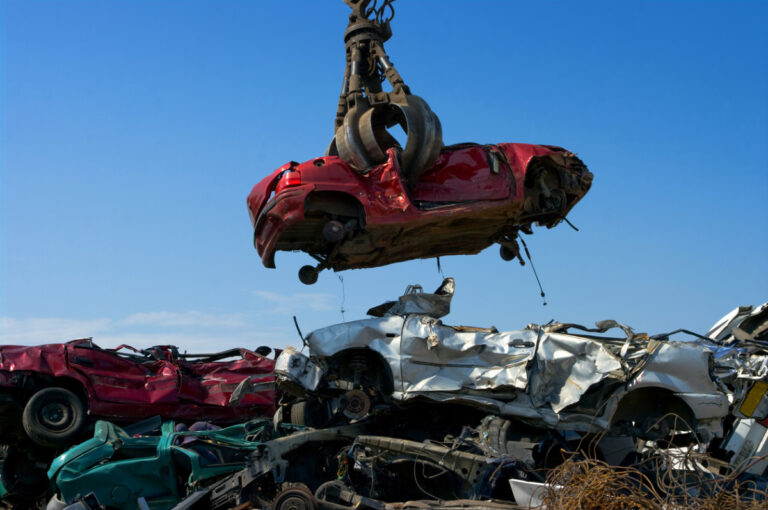Have an old car sitting around and wondering if it’s worth anything? You’re not alone. Figuring out the value of a junk car can feel like cracking a code, especially when terms like “scrap metal value” and “salvageable parts” get thrown around. The good news? Every junk car has value.
The Role of Scrap Metal Prices
One of the biggest drivers of the scrap value of a car is the scrap metal market. Why? Because when your car is no longer drivable or repairable, most of its worth comes from the metals it’s made of. Cars are primarily built with steel and aluminum, and the demand for these metals impacts what buyers are willing to pay.
For instance, if steel prices are high, your car’s value as scrap might increase. On the flip side, if the market is down, it could reduce what you’re offered. This fluctuation is out of your control, but it’s worth keeping in mind when timing your sale.
Tip: Understanding Weight Matters
The weight of your vehicle directly influences its scrap value. Larger vehicles, like trucks and SUVs, often fetch higher prices simply because they contain more metal. Meanwhile, compact cars tend to weigh less and may be worth slightly less for scrap.
Salvageable Parts Can Add Extra Value
Your junk car isn’t just a pile of metal—it’s a treasure trove of parts that could still be useful. Salvage yards and buyers often look for components they can resell or repurpose. Things like engines, transmissions, and catalytic converters can significantly boost your car’s worth.
Catalytic converters, in particular, are highly sought after. They contain precious metals like platinum and palladium, which hold their value even when the rest of the car doesn’t. Similarly, functioning electrical systems, batteries, and tires can add to what you’re offered.
What if Your Parts Are Damaged?
Even if your car isn’t in the best shape, don’t assume it’s worthless. Damaged parts can sometimes still be refurbished or melted down for material. Buyers know how to extract value, so it’s always worth exploring your options.
Age, Make, and Model
Believe it or not, the make and model of your junk car matter a lot. Certain brands and models hold their value better, even when they’re no longer running. This is often because parts from popular models are in high demand, making them more valuable for salvage.
Older cars, especially those built before the mid-2000s, might not fetch as much. Why? Because they often contain fewer valuable materials compared to modern vehicles, which use more advanced metals and components.
Condition of the Vehicle
The overall condition of your car plays a significant role in its value. Is it completely totaled, or does it still have some life left in it? If the car runs or has parts in good shape, you’re likely to get a better offer.
On the flip side, a car that’s been sitting in a field for years, rusting away, may be worth less. Rust eats into the metal, reducing the weight and quality of the materials.
However, even in poor condition, vehicles are still worth something—whether for their scrap metal, parts, or unique materials.
Location, Location, Location
Where you’re located can also impact how much your junk car is worth. In urban areas, there are often more buyers and scrap yards competing for vehicles, which can lead to better offers. In rural areas, options may be more limited, potentially affecting the price you’ll get.
Transportation also factors into this. Some buyers might deduct towing costs from their offer if the car is far away or difficult to move. Others may offer free pickup, which can save you money and add to the overall value of the deal.
Documentation Can Make a Difference
Do you have the title for your car? While some scrap yards may accept vehicles without a title, having it can make the process smoother and sometimes increase the amount you’re offered. It provides proof of ownership, which buyers appreciate when taking on a vehicle.
If you’ve lost the title, check your local regulations—there are often ways to replace it or provide alternative documentation.
Timing Matters More Than You Think
The time of year can also impact how much you’ll get for your junk car. For instance, demand for scrap metal tends to be higher during certain seasons, which can drive up prices. Additionally, when fuel prices are high, parts like fuel-efficient engines may become more valuable.
While you can’t always control timing, keeping an eye on market trends can help you decide the best moment to sell.
How to Get the Best Price
So, how can you make sure you’re getting the most for your junk car? Here are a few tips to keep in mind:
● Shop Around – Get quotes from multiple buyers to compare offers.
● Know Your Car’s Value – Understand what parts and materials your car contains to better gauge its worth.
● Be Honest About Its Condition – Provide accurate information to avoid surprises during pickup.
● Consider Free Towing – Opt for buyers who include this service to maximize your earnings.
● Check Reviews – Look for reputable buyers to ensure a smooth transaction.
Taking a little extra time to research and explore your options can go a long way in maximizing what you get.
Final Thoughts on Junk Car Value
Your junk car may not be the star of the driveway anymore, but that doesn’t mean it’s worthless. Between its scrap metal, salvageable parts, and even unique features, there’s likely more value in it than you realize. By understanding the factors at play—like market prices, condition, and location—you can approach the process with confidence and get the best deal possible. Whether it’s a quick cash offer or a chance to clear out space, turning that old clunker into cash is always a win.
